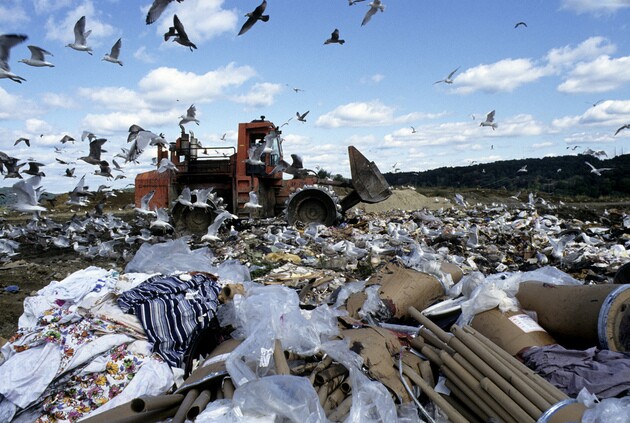Feds Clamp Down on 'Biodegradable' Claims

Manufacturers are going to find it a lot harder labeling their products as biodegradable, if a recent move by the Federal Trade Commission is any indication. The FTC, a bipartisan federal agency that oversees federal truth in advertising laws, announced Thursday that it's taking action against manufacturers that sell plastic and other products claiming those products are biodegradable.
The six complaints announced Thursday mark a new move by the agency to make sure companies doing business in the U.S. comply with the FTC's definition of "biodegradable." That definition, which is in the process of being adjusted by the agency, requires that a product must break down completely within a relatively short period of time when disposed of in a customary fashion.
Since 2012, that time period has been specified as one year, which poses a problem for plastic companies seeking to sell products as "biodegradable": in most landfills, even paper wouldn't qualify as biodegradable.
In fact, though decomposition does take place in landfills, material that is widely recognized as "biodegradable" under certain conditions can remain intact and undegraded for a surprisingly long time. In the 1980s and 1990s, anthropologist William Rathje at the University of Arizona made headlines when he revealed the results of his examination of decades-old landfill contents. Rathje and his colleagues found newspapers still readable after 30 years of landfill burial, and carrots whose cores were still orange.
That's because landfill burial seals discarded material into conditions where any available oxygen is quickly consumed by the bacteria, fungi, and other organisms that start to break down the discarded material. Once the oxygen is used up, degradation slows and even -- as Rathje showed -- stops almost entirely.
Which means that the FTC's standard for the biodegradable label is going to be very hard for any plastics to meet, even if they are truly biodegradable. But there's more at issue with FTC's enforcement actions than a tough new definition of the word "biodegradable"; at least one of the companies that FTC's moving to correct made some very specific claims about biodegradability for which the agency says the company offers no proof.
That firm, Ohio-based ECM Biofilms, sells additives to other plastic companies that ECM maintains make other plastic products biodegradable. According to FTC's press release announcing the enforcement actions, ECM allegedly claimed in its marketing materials that "products made with [its] additives will break down in approximately nine months to five years in nearly all landfills or wherever else they may end up."
FTC calls that claim misleading, and claims that ECM hasn't even proved its additives -- sold as MasterBatch Pellets -- make plastics biodegradable at all.
Other companies pursued in FTC's enforcement actions include two firms that used ECM's pellets in their products; shopping bag maker American Plastic Manufacturing, and golf tee manufcturer CHAMP. Both companies labeled their products as biodegradable based on their use of ECM's additives.
Other companies the FTC's going after include food container maker Clear Choice Housewares (which sold its products under the trade name FarberWare EcoFresh), Carnie Cap, Inc., which makes plastic safety caps that go on the end of rebar, and -- proving that misleading "biodegradable" labeling isn't limited to plastics -- paper plate manufacturer AJM Packaging.
FTC is making an offer to the plastic companies on which it is clamping down: the companies can agree to a consent order in which they stop labeling their products as biodegradable without actual scientific proof that those products will degrade.
AJM's in bigger trouble than the plastics companies: the paper plate company allegedly disregarded a similar enforcement action brought by the FTC in 1994, and even ramped up its claims of its products' degradability, by for instance claiming their plates and cups would biodegrade when tossed in backyard compost piles. (Experienced composters will be chuckling at that claim: the rest of us might be susceptible to that kind of marketing if we didn't know that paper breaks down slowly in compost piles unless it's shredded, and even then only if it's a minor component of a compost pile.)
As a result of those ramped-up claims, AJM is now facing a court order that it pay $450,000 in fines, and lay off further claims of biodegradability unless the company can back those claims up with hard science.
What does this mean for the consumer? It's a reminder that the word "biodegradable" on a label may not mean much. It's certainly not a reason to buy a disposable product with a clear conscience: that "biodegradable" disposable may be only a little changed by the time your grandkids' grandkids find it on the beach. Unless you're going to take responsibility for composting a discardable item yourself, the word "biodegradable" shouldn't make you feel good about throwing it away.


